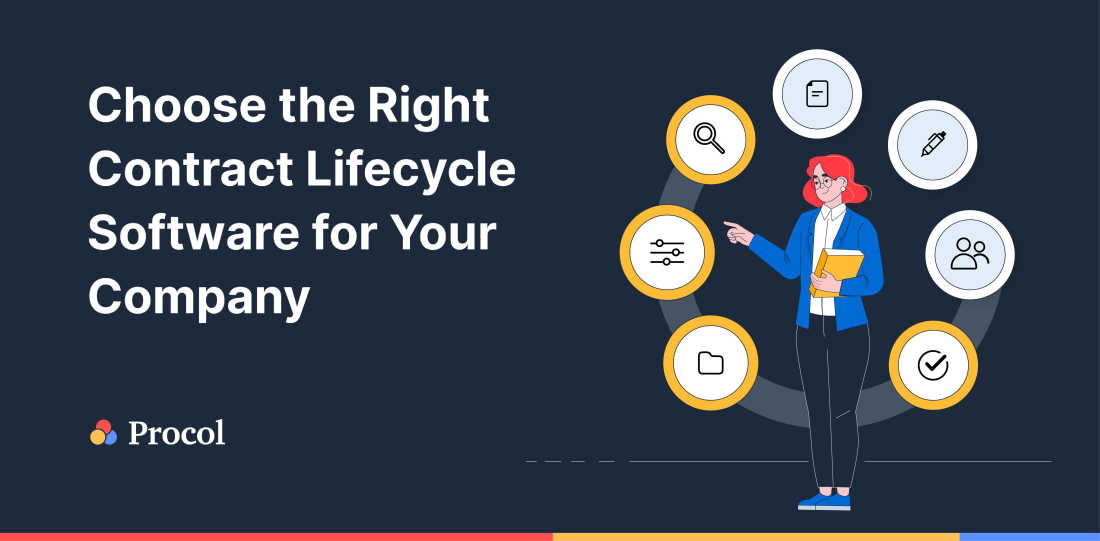Choose the Right Contract Management Software for Your Company

Contract management and Contract Lifecycle Management (CLM) are both extremely important practices in any organization. They’re also two business processes that often get overlooked or underutilized. Many companies struggle to implement an effective CLM system, which is why these two articles are so helpful. In this blog post, the differences between contract management and CLM are explained. Additionally, the details of each practice, including their common challenges and best practices for implementation are discussed in great detail.
What is Contract Management?
Contract management is a practice used to manage the creation, implementation, and termination of contracts. It ensures that all parties are aware of their responsibilities and have a clear understanding of the terms of the agreement. This is particularly relevant in organizations that work on long-term agreements that span multiple parties and have high levels of complexity.
A Contract Management System allows organizations to manage their contractual risk and plan for future contractual obligations – vendor management, for example. It is for this reason that some segments of the contract management industry are growing at as high a rate as 13.5 percent.
What is Contract Lifecycle Management?
Contract lifecycle management is a contractual process that guides organizations through the entire term of the contract. This includes how organizations manage the creation of the contract, the contractual terms throughout the life of the contract, and how they conclude the contract at the end of its life. The lifecycle approach emphasizes the contractual process and ensures that all parties are aligned on the expectations and obligations of the contractual relationship. Contract lifecycle management helps organizations view their contractual relationships as a continuous process rather than a series of discrete, standalone contracts.
What is the Importance of CLM in Business?
CLM is an important contractual practice for organizations to ensure efficient delivery of goods and/or services and to minimize contractual risk.
Contract management and CLM can be used together to effectively manage an organization’s contractual relationships. Investing in contract management tools helps companies deal with contractual terms and the lifecycle of a contract in an efficient manner, and also helps create institutional memory.
Why Is CLM Implementation Difficult For Companies?
Contract Lifecycle Management is often difficult to implement because many companies struggle to understand their contractual relationships. They may lack the tools, resources, and organizational processes to effectively manage their contractual relationships. It is because contractual relationships vary in terms of the number of parties involved, the complexity of the contractual terms, the contractual risk of each relationship, spend management, and the extent to which each relationship is active.
It can make it difficult for organizations to effectively manage their contractual relationships. Contract management software can help ease this challenge by providing organizations with the tools and functionality they need.
Best Practices for Successful Contract Management and CLM Systems
1. Establish a clear contractual relationship management process
Contractual relationship management is a process that helps organizations understand their contractual relationships. It allows organizations to fix the:
- Number of contractual relationships
- Types of contractual relationships
- Risks associated with contractual relationships
- The extent to which each contractual relationship is active
2. Develop a contractual terms management process
Contractual terms management is a process that allows organizations to effectively and efficiently manage the creation and modification of contractual terms. Organizations will also be able to set up and maintain a contractual terms database to streamline their management.
Wrapping Up
Contract management and CLM are two contractual practices that can help organizations effectively plan for the future, manage their contractual obligations and minimize contractual risk. With efficient contract management, you can take care of the contractual terms and lifecycle of a contract. But given the difficulties involved, businesses are looking at software solutions for contract management and e-procurement.
Procol has developed one of the industry’s leading software solutions which have been widely adopted due to their uncomplicated interface and easy accessibility. Schedule a demo to learn how Procol can be beneficial for your business.
Get a Free Demo
We'd love to hear from you. Please fill out this form to schedule a demo with us. You can also give a call on +91 76666 82222



